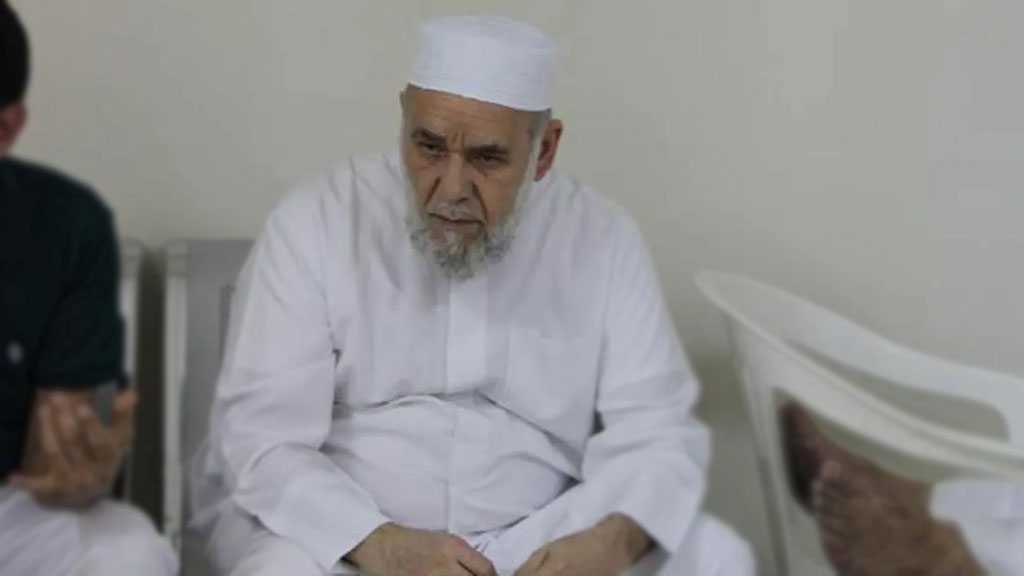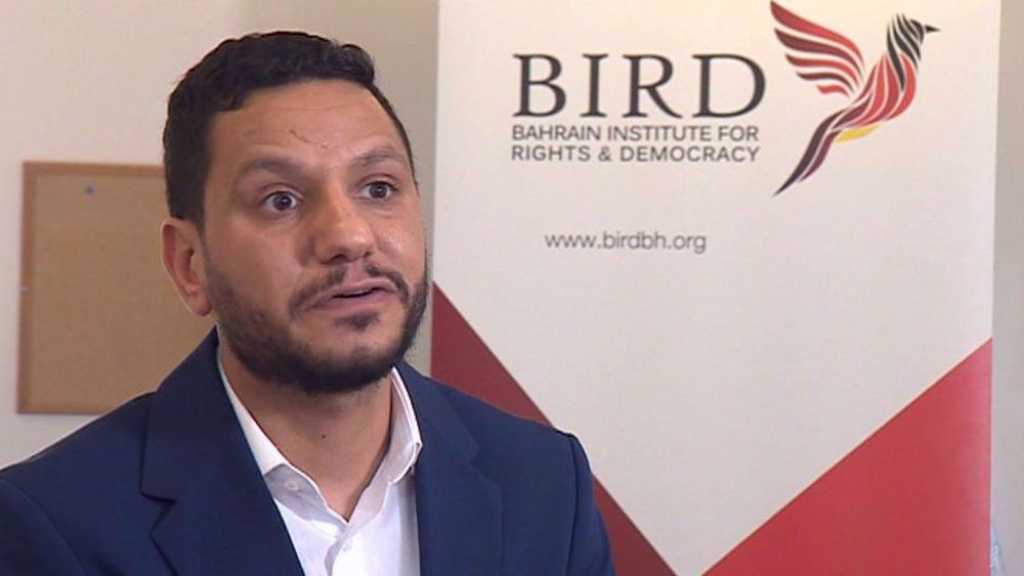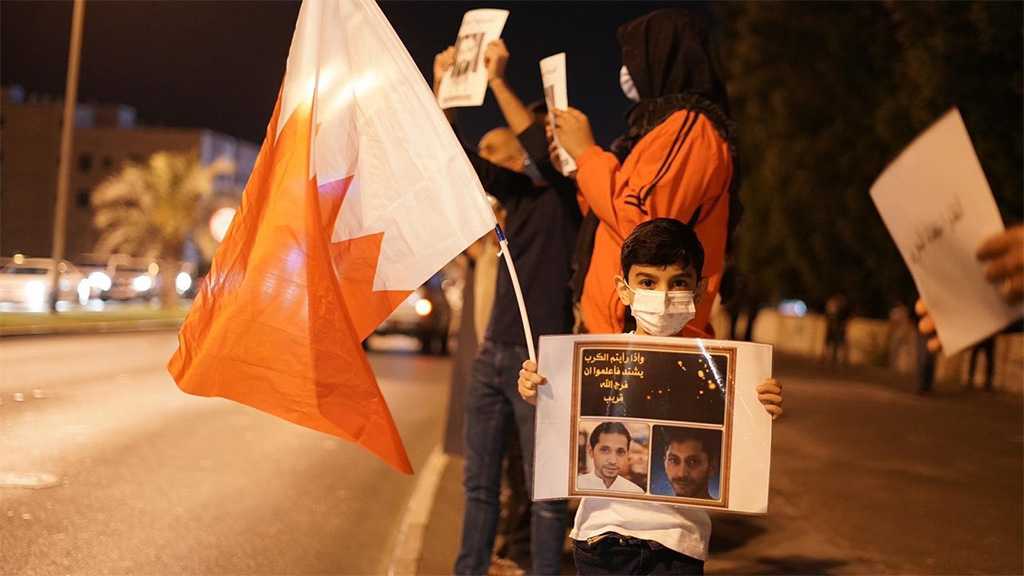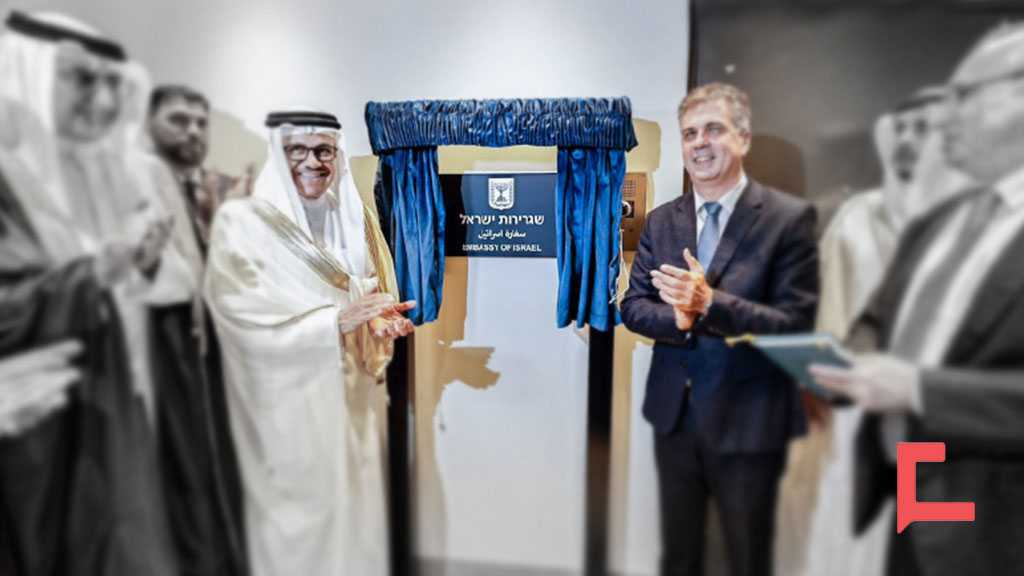
Al Khalifa Crackdown: Bahrain Arrests 12 Peaceful Protesters at Diraz Sit-in
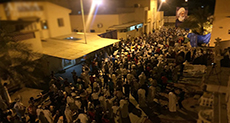
Local Editor
In the past week, the Bahraini authorities have escalated their targeting of protesters in Diraz. The number of individuals summoned and arrested over the past week has substantially increased.

Bahrain's state-run news agency said 12 protesters had been detained and charged with "unlawful assembly" over demonstrations near the home of Bahrain's Shia spiritual leader Sheikh Isa Qassim.
The Bahrain Institute for Rights and Democracy said six of the 12 were Shiite clerics.
The sit-in comes after the Bahraini regime revoked the citizenship of Ayatollah Sheikh Isa Qassim on 20 June 2016.
His supporters took to the streets in numbers unprecedented since 2011. With reports of the authorities' intention to forcibly deport him, the protesters staged an open sit-in.
Despite the authorities' attempts to limit participation at this sit-in by issuing official statements threatening the protesters, restricting access to Diraz, and frequently summoning and arresting participants, the sit-in in front of Sheikh Isa Qassim's house in Diraz continued for more than 50 days.
The Bahrain Center for Human Rights [BCHR] documented a recent escalation in the number of summons and arrests of individuals, which appears to be an attempt by the authorities to end the sit-in or reduce the numbers of protesters.
The Bahraini regime had launched a mass campaign of summons and arrests over participation in the Diraz sit-in.
Since the beginning of August, the BCHR documented the summons of 73 persons, 44 of whom are Shia clerics and religious singers. The majority were kept in detention overnight before being presented to the public prosecution.
Moreover, the public prosecution remanded at least 23 of them to 15 days in detention over charges of participating in illegal assembly. Among them are well-known clerics and activists.
This is believed to be a form of intimidation to prevent people from exercising their right to free assembly. Several of them reported being asked to sign a pledge not to participate in the sit-in. The complete number of those summoned and detained is suspected to be much higher.
Since the beginning of August, the public prosecution has published seven public statements regarding the number of individuals summoned and interrogated over what it called "illegal gathering" in Diraz.
On 4 August 2016, the public prosecution stated that it has referred eight cases to the courts on charges of "unlawful gathering, instigating hatred of the regime and unlicensed rallying."
On 8 August 2016, the trial of Sheikh Majeed Al-Mesha'al, the head of the dissolved Ulema Council, has hastily commenced. His lawyer was not informed of the timing of the trial. It was postponed to 17 August 2016.
On 30 July 2016, security forces raided the house of Sheikh Al-Mesha'al. The public prosecution charged him with allegedly persisting in inciting others to disobey the law and over his participation in an "illegal gathering". Sheikh Al-Mesha'al actively participated in the sit-in in front of Sheikh Isa Qassim's house. He was summoned several times since the start of the sit-in on 20 June 2016.
The authorities had taken a number of repressive measures against protesters in Diraz. They had effectively put the whole community under siege; all entrances to the village have been closed.
There are two entrances to the villages, both subjected to strict checkpoints. Only persons with addresses in Diraz on their ID cards can enter the villages. Families of persons from Diraz have been prevented from visiting since the start of the sit-in.
Restrictions have been placed on the Internet. All Internet service providers - mobile and broadband - shut down their services between 7 P.M. to 1 A.M.
Since the 14 February 2011 pro-democracy movement, the Bahraini authorities had introduced laws to further restrict the right to freedom of assembly.
In 2013, the government passed amendments to the gathering law, placing a ban on all demonstrations unless permitted by the Ministry of Interior. It has especially banned demonstrations in Manama.
The Bahraini regime's actions are in direct violation to the International Covenant on Civil and Political Rights [ICCPR] Article 21 which states that "the right of peaceful assembly shall be recognized. No restrictions may be placed on the exercise of this right other than those imposed in conformity with the law and which are necessary in a democratic society in the interests of national security or public safety, public order (order public), the protection of public health or morals or the protection of the rights and freedoms of others."
Source: News Agencies, Edited by website team
